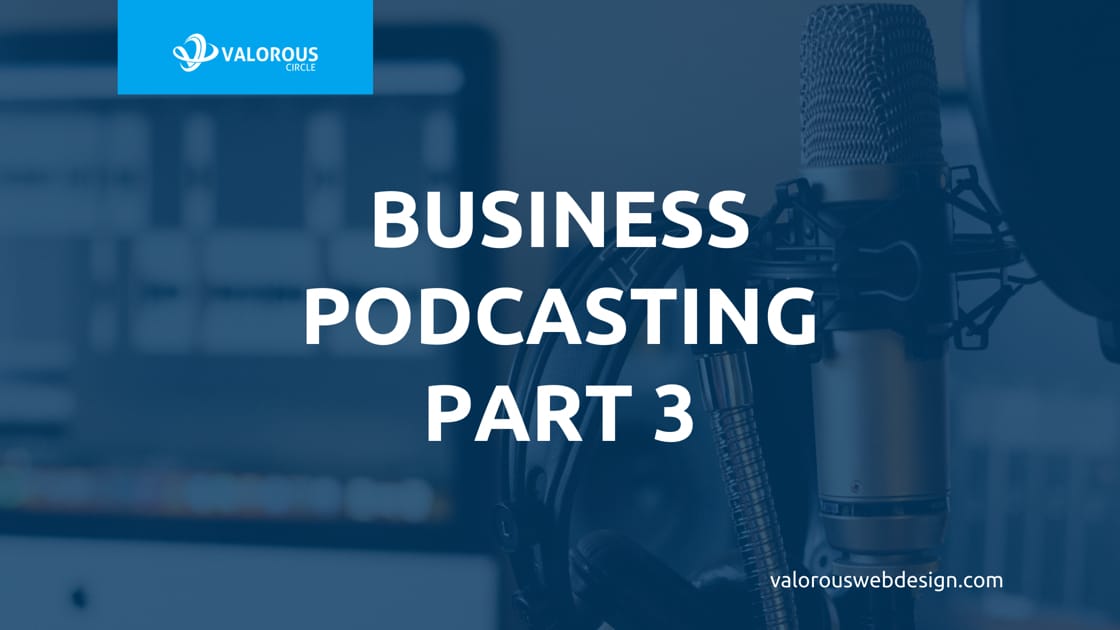It’s Valorous Circle, with your third lesson in the Business Podcasting Basics crash course. In today’s lesson, we’re going to talk about planning podcast content.
Before you think about the type of content you want to create for your podcast, it’s important to think about format and broadcast schedule. For instance, what topics are you going to focus on? Do you want to produce a simple audio podcast, or do you want to go all out and host a video cast? Are you going to host a weekly, by-weekly or monthly cast? Perhaps you just want to start by creating a topic specific series of audio podcasts you can package and sell.
These are all questions that must be considered before you can start creating content.
When you are thinking about the answers to these questions, it’s also important to consider your target listeners wants, needs, preferences and interests because they are the ones who will make or break your new cast, so you want to create content that hooks them in and keeps them listening.
One of the best ways to create captivating podcast material is to focus on topics you know a lot about. For most business owners, this is the products and services we offer. This way you’ll have very little trouble talking about it while you’re on air or recording. Just be careful not to turn your cast into a pitch fest.
*Nothing will make listeners tune out faster than a continuous sales message.
Soft selling is the best approach. Don’t worry, you don’t have to know absolutely everything related to your cast. You can always fill in the blanks by inviting and interviewing guest experts. This is a very common practice in the podcasting industry. This might challenge at first, but once you become established you will have no trouble getting industry experts to join you because it’s as good for them as it is for you. When you have a guest on your show will focus on asking the questions, you know your subscribers would like to ask.
Hint: If you’re not sure what to ask try polling your subscribers. It’s a great way to find out what they want to know!
Another important step is writing a script. This way if you get nervous or forget what you want to say, you have a cheat sheet to refer to. It doesn’t have to be a lengthy, detailed script that you read word for word on air. It just needs to include an overview of the topics you want to discuss and questions you plan to ask if you have a guest. Create a bulleted list with my main topics bolded with speaking points underneath. However, you can create your script in any format that is comfortable to you. Here are a few other options that may work better for you:
- Index or cues cards.
- Use your computer as a tele-prompt.
- A white board in your line of site.
- Simple notes on your desk.
- Scribbled on your hand.
It really is up to you, but the point is to remember all of your speaking points so that you don’t end up recording dead air. Here is a nice tutorial that includes a few more tips you can use for your own script. It also has an example of the bulleted list I like to use so you can see what it looks like.
If you find yourself stuck for ideas or not sure exactly where you want to go with the content of your show, try tuning into a few popular podcasts from others in your industry. This is a great way to find out what works and what doesn’t. Just keep your notebook handy and jot down any ideas that you want to use in your own show.
That’s it for today’s lesson. In your next lesson, we will talk about practicing and preparing for your first business podcast.



